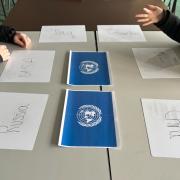
With GCSEs coming up there are many stressed students trying to memorise quotes from 3 books and 15 poems needed for their English literature exam. However, many are questioning if there is any point in doing so. There have even been petitions in the past to try and change them to open book. How successful were they?
There was a government petition which closed in March 2018 . It argued that “pupils should be able to understand and analyse the texts, not memorise them” and “exams shouldn’t be a test of memory but the ability to interpret a text”. As well as this, people have pointed out that the exams have been open book for a long time so that means that the year groups that did the exam before it became closed book would have had an advantage over the people doing them now. Another thing which was questioned in the petition was when memorising these texts would be useful for the students' futures asking “when in life will you ever have to remember lots of information about lots of text?”.
The government responded to this petition in February 2018 stating that “pupils are not required to memorise texts and will not be awarded good marks simply by memorising and writing out sections of the poems or texts they have studied”. People have also pointed out that even if the model did get accepted by the government they wouldn’t be able to change the current Year 10 and Year 11 specification as it’s too late meaning that they would be giving lower year groups an advantage. Some people also argued that “If we prioritise a skill of interpretation over knowledge of the texts studied we can then also claim that it doesn’t matter what it is that students are interpreting”. Grade boundaries change every year depending on the year group so if the whole year group got lower percentages then they would still get the same grades as those that did it the year before.
Unfortunately, for GCSE students, right now it looks like English Literature GCSE isn’t being changed any time soon



























